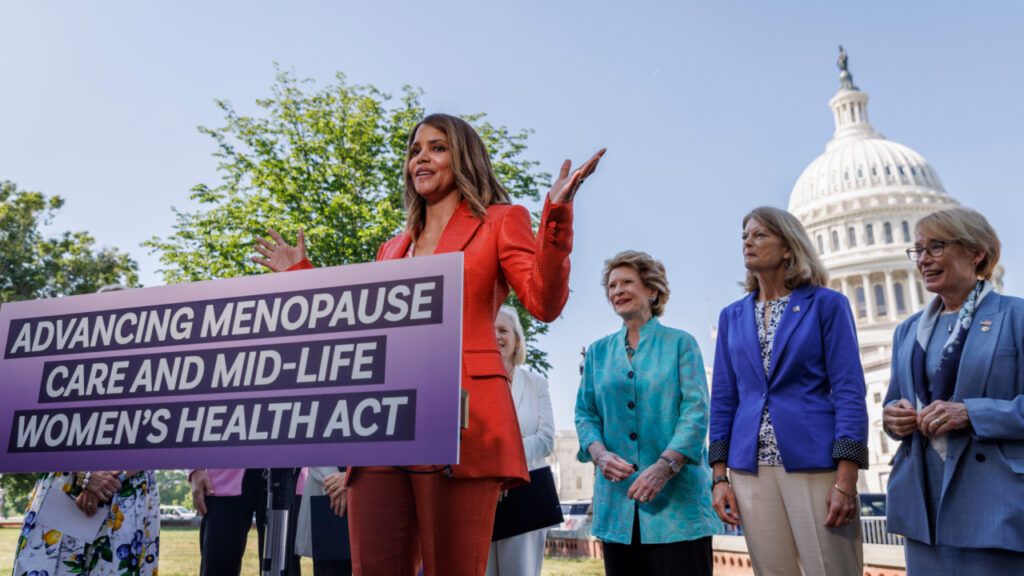Ready to Take Control? Here’s How to Find the Perfect Contraceptive for You
Access to contraception has been a critical health issue for women for decades. Yet, Latinas and Women of Color continue to face persistent barriers.
A recent study published by the Morehouse School of Medicine in Atlanta, Georgia, shines a light on the racial and ethnic disparities that exist in women’s reproductive health. These disparities have real consequences. From higher rates of unintended pregnancies to a lack of access to essential healthcare services like contraceptives. For Dr. Kameelah Phillips, Board-Certified OB/GYN and Organon Health Partner, these issues are at the heart of her work.
“Pain in medicine, especially in relation to women’s health, is often overlooked,” Dr. Phillips explains, reflecting on the new CDC guidelines on IUD insertion and pain management. “It’s an important topic to address.” This is especially true for Latinas and Women of Color, who have been historically underserved in reproductive care. For many women, the fear of pain and the lack of open conversations with healthcare providers contribute to the hesitation around long-acting reversible contraceptives (LARCs) like IUDs and arm implants.

The new CDC guidelines aim to address these concerns. However, Dr. Phillips emphasizes that every woman’s experience is unique.
“I never say that they won’t experience any discomfort during the insertion process,” she shares. “I always have an open and honest conversation with my patients about their birth control options and potential pain associated with insertion if they are considering a LARC method.”
This approach is crucial in a medical landscape where many women—especially women of color—feel their pain isn’t taken seriously.
“Everyone has a different threshold for pain,” Dr. Phillips adds. “So I never say that they won’t experience any discomfort during the insertion process. I do find talking about potential pain medication options and letting patients voice their concerns helps alleviate some anxiety they may be feeling. Having these open conversations supports better patient management, counseling, and trust. I want to ensure patients are aware of all their options and feel confident in their birth control choices.”
Contraceptive access: A human rights issue
Latinas and Women of Color often face systemic barriers when it comes to accessing reproductive healthcare, including contraception. According to recent data, contraceptive use among Hispanic women is statistically lower than their White counterparts. This is often due to social and structural factors such as fewer neighborhood health services and lack of insurance coverage.
Dr. Phillips points out that medical mistrust, compounded by historical injustices, still plays a significant role in these disparities. “As a woman of color, I understand the obstacles one can face when talking to a healthcare professional,” she explains, “With my patients, I find it’s important to listen and have an open conversation about their needs and concerns, especially when it comes to birth control. Once we figure out what the patient is looking for with their birth control, then we can discuss the different options that could be right for them.”
The Affordable Care Act (ACA) and other policy interventions have made strides in expanding access to reproductive health services. But gaps remain—especially in states that have not expanded Medicaid.
Access to affordable and culturally sensitive healthcare is still limited for Latinas in these areas. Dr. Phillips stresses the need for patients to stay informed and advocate for themselves. “Patients should turn to trusted, medically reviewed sources and conduct their own research, in addition to feeling empowered to speak to a healthcare professional,” she advises.
A spectrum of contraceptive options
Birth control is not one-size-fits-all. For Latinas and Women of Color, choosing the right contraceptive method can be a complex decision influenced by cultural and personal beliefs. Dr. Phillips highlights non-uterine options like the arm implant as alternatives for those looking for long-acting contraception. “I counsel my patients to ask themselves, what are the three most important things about birth control to me? Once they answer that, it becomes easier to guide them toward a method that fits their needs.”
In communities where medical mistrust is prevalent, Dr. Phillips encourages patients to be proactive. “If your doctor doesn’t discuss potential side effects, don’t be afraid to ask,” she says. “Open dialogue is key in making shared decisions that respect the patient’s values and priorities.”
Confronting disparities and advocating for change
The racial disparities in reproductive health outcomes are well-documented. From higher maternal mortality rates to lower access to contraception, women of color face significant challenges. Recent studies have determined these disparities aren’t just about individual risks. They stem from structural racism. The Morehouse School of Medicine’s recent guidance underscores the role of racial bias in reproductive health and calls for a renewed commitment to eliminating these disparities.
Dr. Phillips advocates for a multipronged approach to solving these issues, starting with healthcare providers opening a safe space for their clients. “During appointments, I recommend patients use direct, specific language to clearly communicate what they need,” she explains. I also encourage patients to bring their full selves to the visit so I can understand all the aspects of their lives that influence their decision-making.”
“If something doesn’t make sense or you need more information, feel free to ask follow-up questions until you are comfortable with the counseling you’ve received.”
Empowerment through education
At the heart of reproductive justice is education. Dr. Phillips believes that every woman should be empowered to understand her body and make informed decisions about her health. “I typically discuss contraception with my patients during their annual visits. However, I often remind my patients that if they have questions based on what they see online or have any changes in their life that may impact their current method, they should call or make an appointment to discuss their contraceptive options. Women do not need to wait for their annual appointment to talk with their doctor.”
As we mark World Contraception Day, it’s clear that while strides have been made in women’s health, there is still much work to be done. For Latinas and Women of Color, access to contraception is not just about preventing pregnancy—it’s about autonomy, health equity, and dismantling the systemic barriers that have kept them from receiving the care they deserve.




